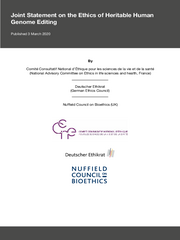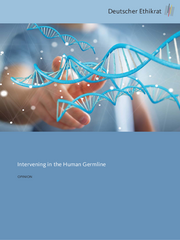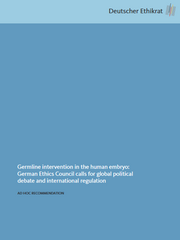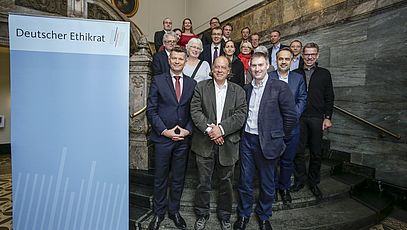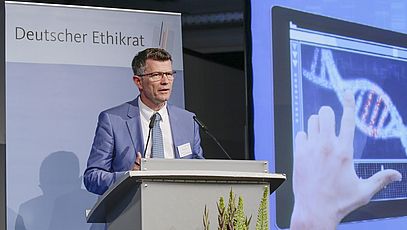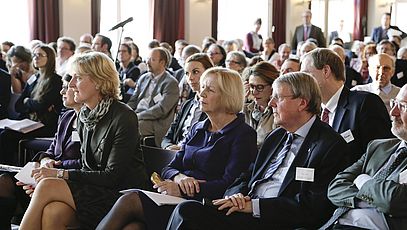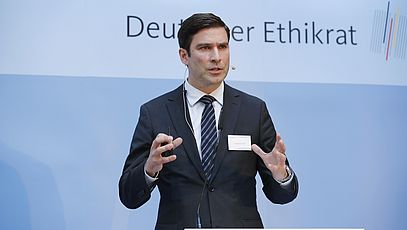Interventions in the Human Germline
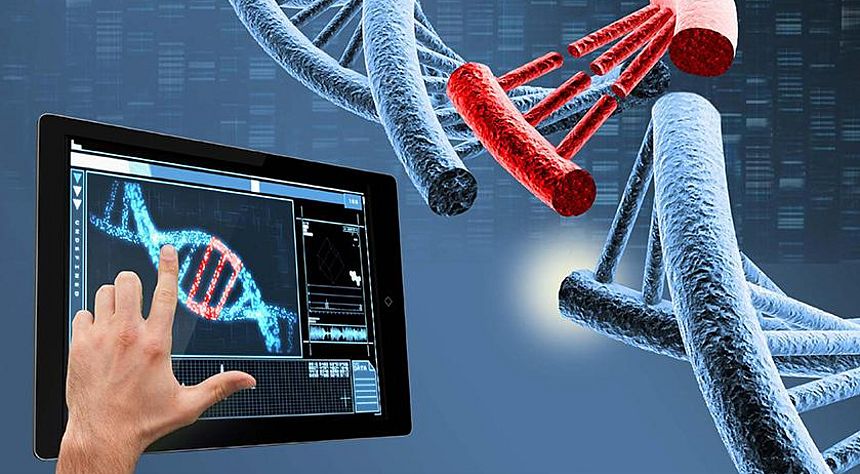
Deutscher Ethikrat
New molecular techniques collectively referred to as genome editing allow remarkably easy, fast, and precise changes in the genome and make interventions in the human germline in the near future seem technically feasible.
The long term goal of editing the genome of embryos or germline cells consists in eliminating disease-relevant genetic variants in all cells of the body. Such modifications would be passed on to potential progeny as well. The advent of genome editing techniques therefore gives new urgency to fundamental ethical questions about the legitimacy of germline interventions.
The German Ethics Council has been observing and contributing to the debate about genome editing for some time now. After highlighting some of the open questions and possible consequences of systematic human germline editing in an ad hoc recommendation from 29 September 2017, the German Ethics Council started working on a full Opinion document in December 2017.
The aim is to present the different arguments behind potential answers to the question if and under which circumstances interventions in the human germline should be prohibited, allowed or even be considered imperative. According to the German Ethics Council, the following aspects need to be considered in this context:
- Which diseases should be prevented? What are the chances and risks of these new interventions, compared to already existing methods such as PGD?
- Where lies the boundary between justifiable and unjustifiable risks?
- What are the implications for our responsibility towards future generations?
- Which societal and cultural consequences are entailed by introducing such interventions?
- Is there a duty to preserve "naturalness" that sets boundaries for genome editing?
- Could it be responsible to use genome editing in a broad manner in order to enhance humanity as a whole?
- Which possibilities for international regulation are conceivable?

